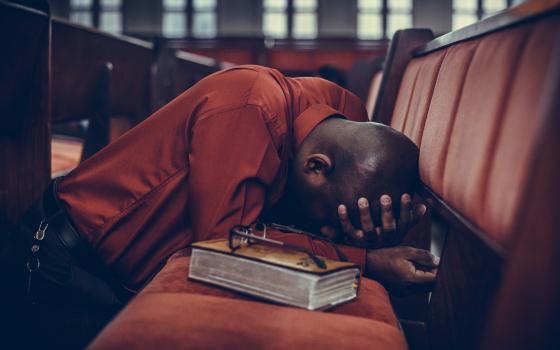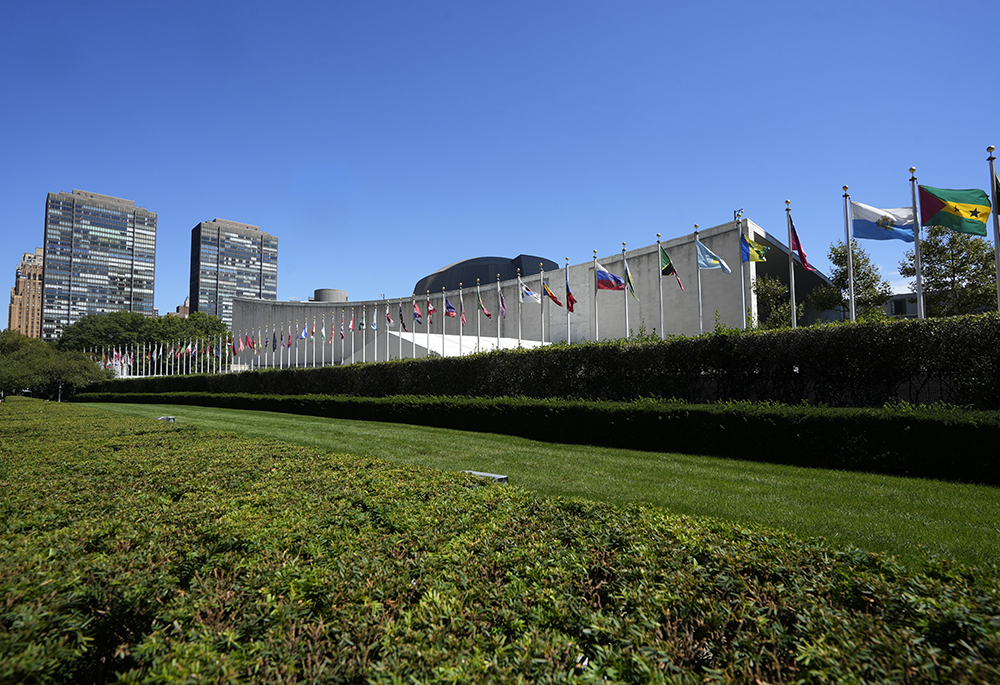
The United Nations General Assembly building in New York City is seen Sept. 8, 2025, a day before the opening of the 80th session of the U.N. General Assembly. (OSV News/Gregory A. Shemitz)
Editor's note: This story is part of Global Sisters Report's yearlong series, "Out of the Shadows: Confronting Violence Against Women," which will focus on the ways Catholic sisters are responding to this global phenomenon.
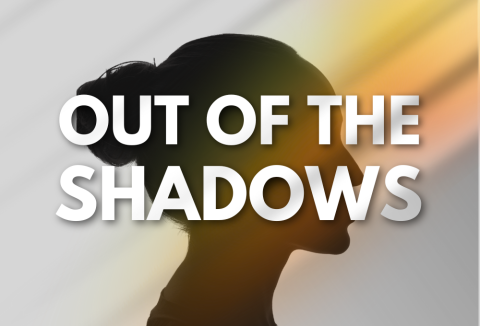
(GSR logo/Olivia Bardo)
When the United Nations General Assembly meets Sept. 9-29, heads of government will exercise bragging rights.
Speaking before hundreds of assembled diplomats and world leaders, they will likely boast of their respective governments' accomplishments and victories.
Some will focus on progress made in addressing the global body's ambitious goals to eliminate or reduce social and economic ills like poverty by the year 2030.
But the reality about such progress is complex.
Few, if any, at the U.N. believe that the benchmarks — known as the sustainable development goals, or SDGs — will be achieved within five years.
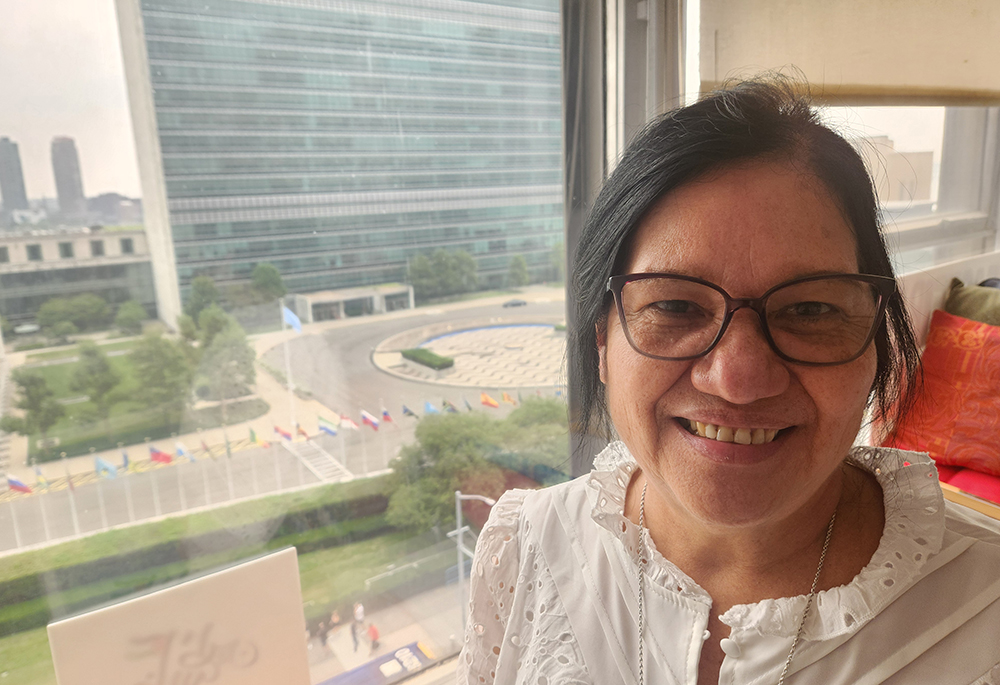
Sr. Melba Rosa Vasquez Rodriguez, who represents the Congregation of Notre Dame at the U.N., is pictured at the Church Center for the United Nations, across from the U.N.'s headquarters in New York City. (GSR photo/Chris Herlinger)
"The majority of the countries are not going to achieve those goals," Sr. Melba Rosa Vasquez Rodriguez, who represents the Congregation of Notre Dame at the U.N., told Global Sisters Report, emphasizing what other sisters have said in recent years about the SDGs.
"There is still a significant gap between developing and developed countries in achieving the SDGs," Vasquez said following a recent forum at the U.N. on sustainable development.
The annual meeting, held this year July 14-23, assessed progress made toward the sustainable development goals, and each year focuses on some of the 17 goals. This year, the focus was on gender equality, as well as partnerships, good health and well-being, decent work and economic growth, and life below water.
The gathering, known as the High-level Political Forum on Sustainable Development, also featured national reviews of progress and challenges in implementing the SDGs.
At the start of the meetings, U.N. Secretary-General António Guterres issued a report that starkly laid out the challenges that Vasquez suggested.
The latest available data show that only 35% of the goal's targets "are on track or making moderate progress, while nearly half are moving too slowly and 18 per cent have regressed," the U.N. reported.
Like a coach trying to cheer on his team, Guterres tried gamely to put a positive spin on progress, saying that "the sustainable development goals are still within reach." But he said that would only happen if U.N. member states act "with urgency, unity, and unwavering resolve."
Still, not all of the news was bad.
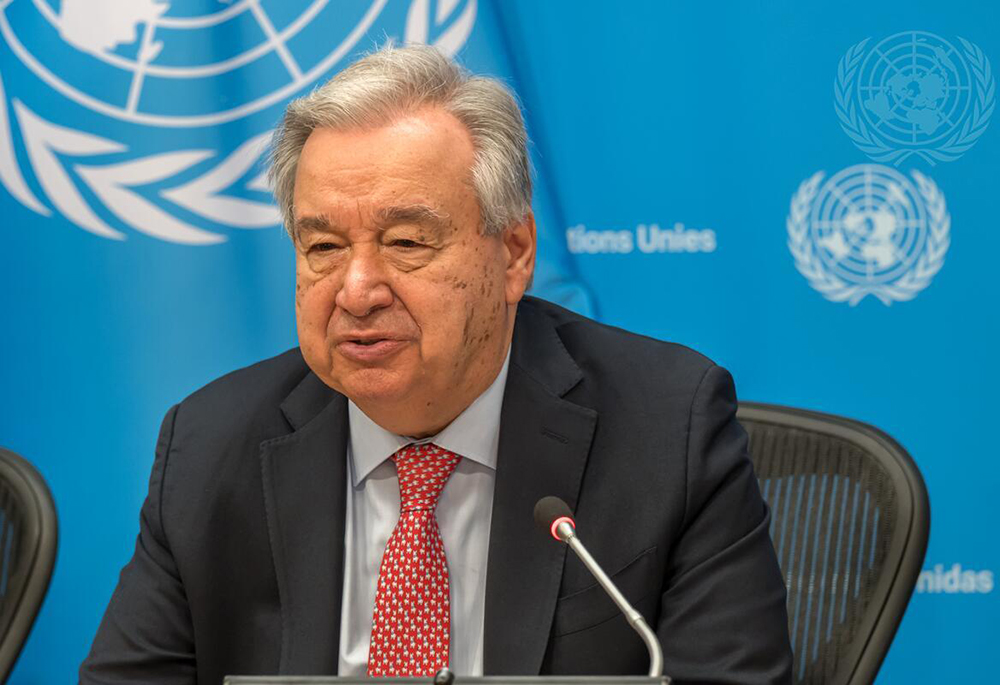
United Nations Secretary-General António Guterres speaks to reporters on July 14, the day the U.N. issued a report on the status of the world body's sustainable development goals. (Courtesy of U.N./Mark Garten)
Millions of lives have been saved through national and global initiatives — new HIV infections have declined by nearly 40% since 2010, according to the report, and malaria prevention programs have saved as many as 12.7 million lives since 2000. Fewer girls are getting married as children.
And yet, the U.N. chief said in the report that more than 800 million people still live in extreme poverty. According to Li Junhua, under-secretary-general for the Department of Economic and Social Affairs, "One in 12 people still experience hunger, and billions lack access to safe drinking water, sanitation and hygiene."
Another challenge: the threat of climate change, as well as civil and political conflicts, with the U.N. reporting more than 120 million forcibly displaced in 2024.
Moreover, one of five goals spotlighted this year — gender equality — is not faring well, according to the report.
Noting that 2025 marks 30 years since the landmark Beijing Declaration and Platform for Action — which put the issue of gender equality front and center for the U.N. — "gender equality remains elusive," the report said.
While there has been some progress, "discriminatory laws and gender-based norms continue to hinder gender equality," the report said. "Women remain underrepresented in decision-making and leadership roles and often lack autonomy over sexual and reproductive health, land rights and technology access."
Advertisement
It added: "Women's disproportionate share of unpaid domestic and care work continues to limit their access to education, career opportunities and political engagement, while harmful practices, such as child marriage and female genital mutilation (FGM), persist globally."
Vasquez echoed those concerns.
In attending some of the national reviews of individual countries, like Lesotho and Norway, Vasquez said she was struck by both progress and continued challenges when it comes to gender equality.
And countries such as Sudan, she added, which are experiencing civil war or strife and increased migration, are seeing spikes in instances of gender-based violence.
"Violence against women, inequities and discrimination, and disparities of opportunities continue to present a reality that needs to be addressed as a structural reality," Vasquez said, adding that "global commitments" expressed by the SDGs "must be fulfilled at the national level."
"There is a lot of work to be done at the grassroots," she said. "There is a lot of work that is unfinished."
Another observer at the recent meetings, Sr. Janet Palafox, the NGO representative to the U.N. for the Institute of the Blessed Virgin Mary-Loreto Generalate, said the need to keep pushing on gender equality is paramount because of the overall global pushback to gender equality. She noted that often the family is being "weaponized" against gender equality — "as if providing equal rights and opportunities for women and girls is detrimental to families when the evidence is the opposite," she said.
Still, Palafox told GSR she is encouraged by what she sees as progress "in access to education and leadership. There is much more that needs to improve and we need to protect what we have achieved. We will continue to hold the line."
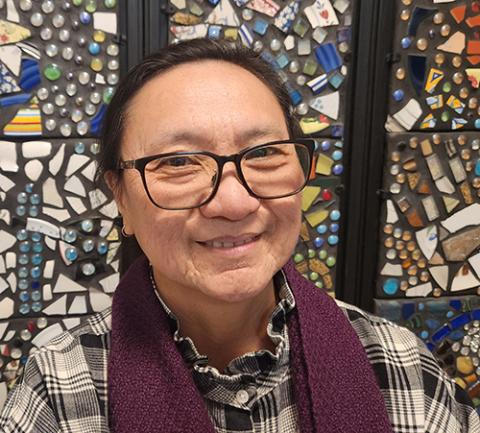
Sr. Janet Palafox is NGO representative to the U.N. for the Institute of the Blessed Virgin Mary-Loreto Generalate. (GSR photo/Chris Herlinger)
More broadly, Palafox praised civil society groups that appeared at the recent U.N. meetings, particularly large groups of young people.
Such organizations, she said, continue "to advocate and hold governments and leaders accountable, not only to what they have committed to over 15 years ago when the SDGs were agreed to, but [also] to ensuring that the human rights of every creature, Earth included, are protected."
She added: "It was encouraging to hear them speak truth to power especially during the voluntary national review presentations when they presented the experience and recommendations of the grassroots — the people on the ground."
Among those "on the ground" making a recent appearance at the U.N. were Steve Rohan Rocha and Souran Mishra, representing the children's advocacy campaign NINEISMINE, which is convened by the nongovernmental organization PRATYeK, based in New Delhi, India.
In an interview with GSR following the U.N. meetings, they said they are committed to working with local and national governments to solve what seem to be almost intractable problems, noting the enduring effects of the caste system, India's growing income inequality, and the fact that nearly half of the world's economically poor people reside in India.
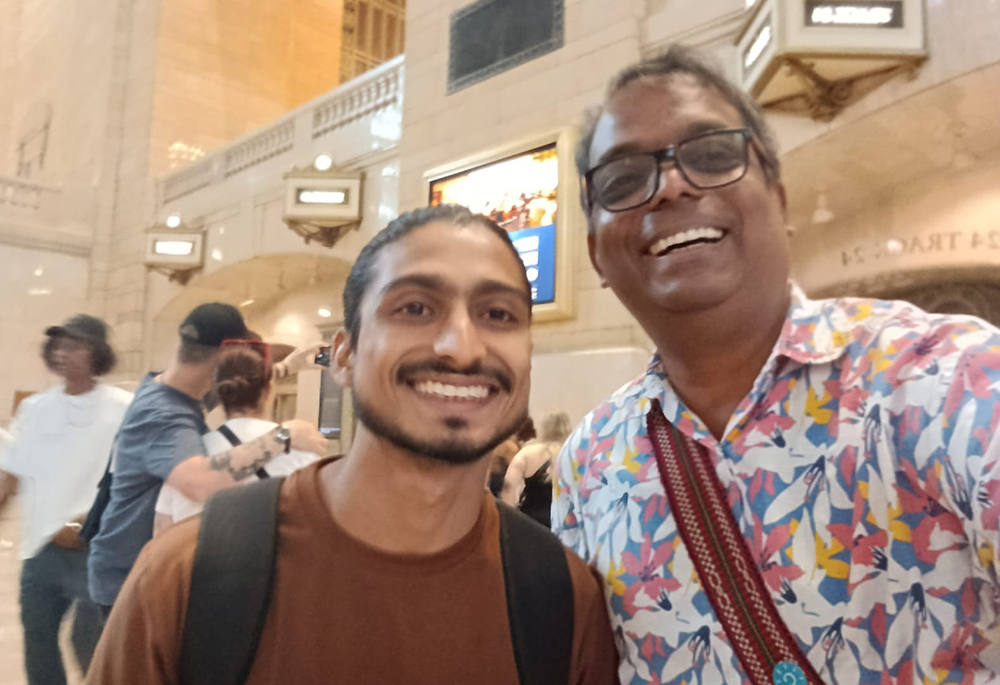
In a photo taken at Grand Central Station near the United Nations headquarters were Steve Rohan Rocha, right, and Souran Mishra, representing the children’s advocacy campaign NINEISMINE, which is convened by the nongovernmental organization PRATYeK, based in New Delhi, India. Both attended recent meetings of the U.N.'s High-level Political Forum on Sustainable Development. (GSR photo/Chris Herlinger)
For Mishra, speaking at the U.N. was an opportunity to present the voices of children he works with — "voices that need to be heard," he said. Meanwhile for Rocha, the U.N. was the appropriate forum to voice overall concerns about poverty in India.
"It is more impactful to speak at the United Nations," he said, because the U.N. takes the issues of poverty and human rights seriously and places them in a globalized conte
Palafox said that is a reason why sisters continue their advocacy at the U.N., always keeping the SDGs at the forefront.
"The SDGs matter because all people and our earth matter. It is about caring for all people, especially those most left behind and our planet Earth," she said.
"Our ministries have always been caring for people, especially those most left behind — long before the SDGs. I look at our ministries and I think it covers almost all, if not all, of the 17 SDGs."
Catholic sisters like Palafox will not be seated beside diplomats and national representatives on the floor of the U.N. General Assembly hall, Sept. 9-29. But they will be keen observers — and among the most ardent advocates keeping the dreams of the sustainable development goals alive.






